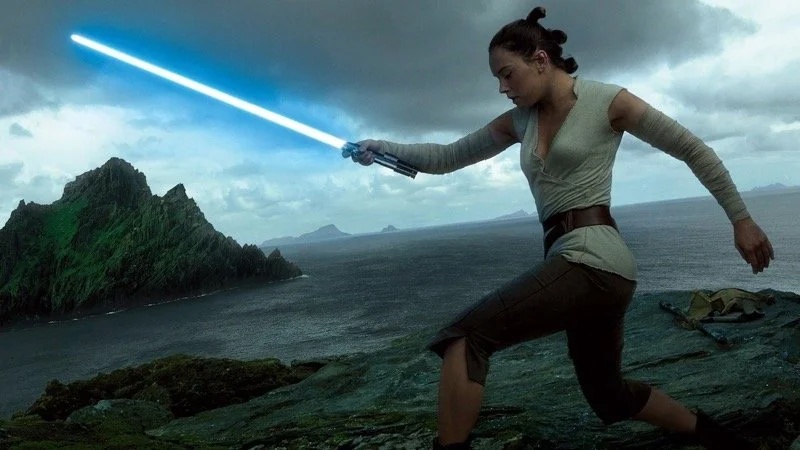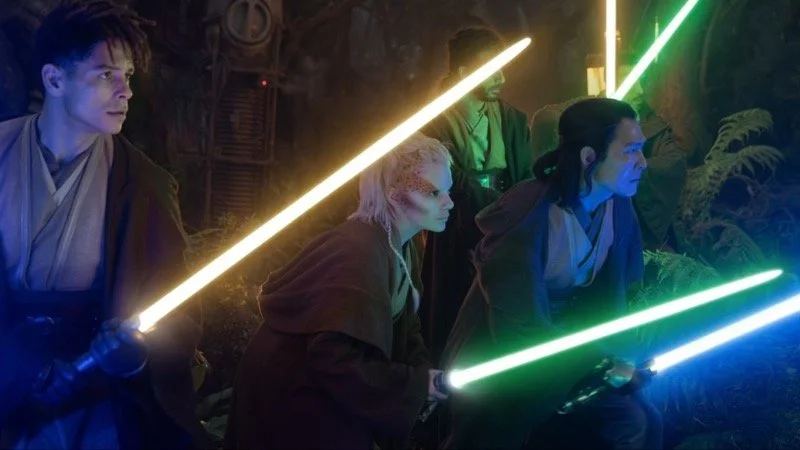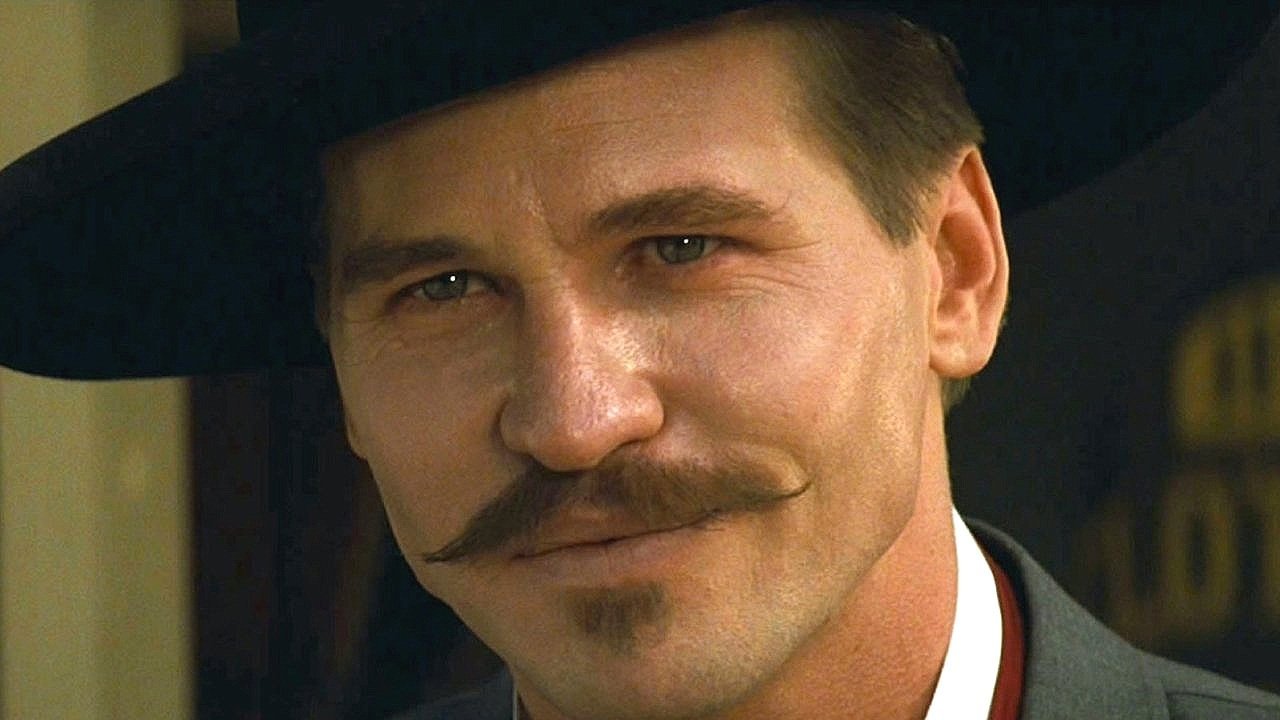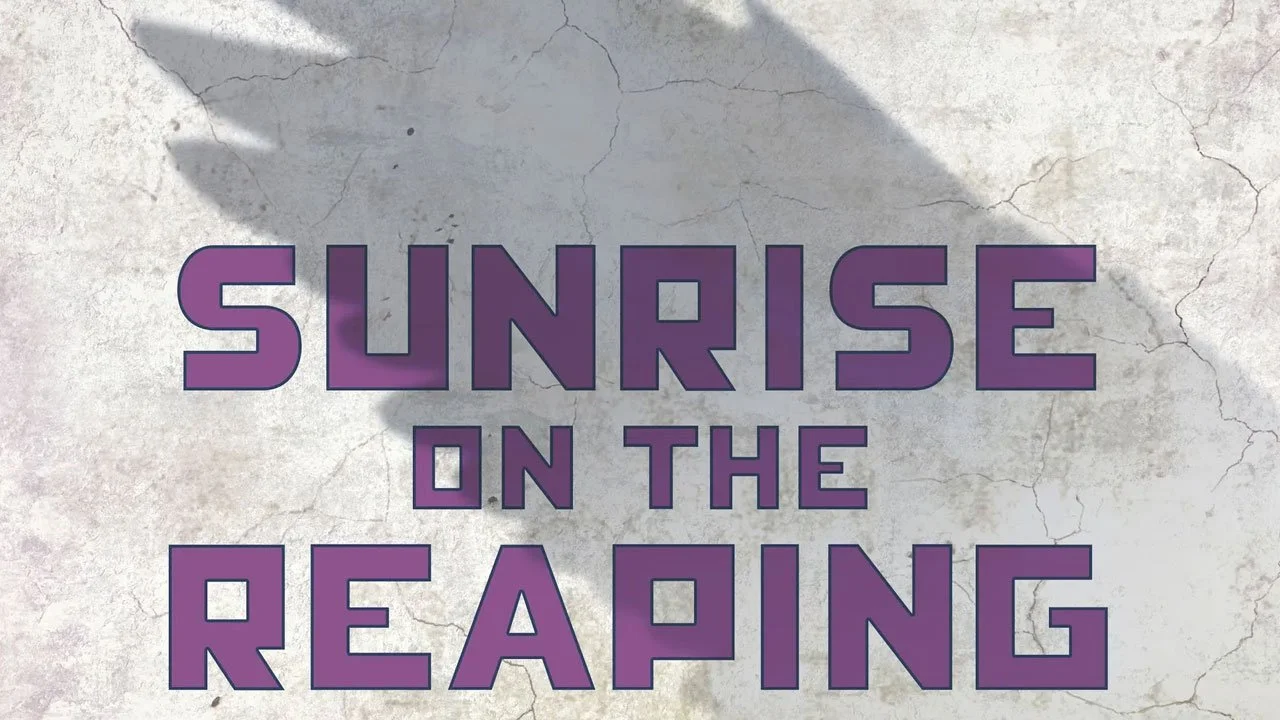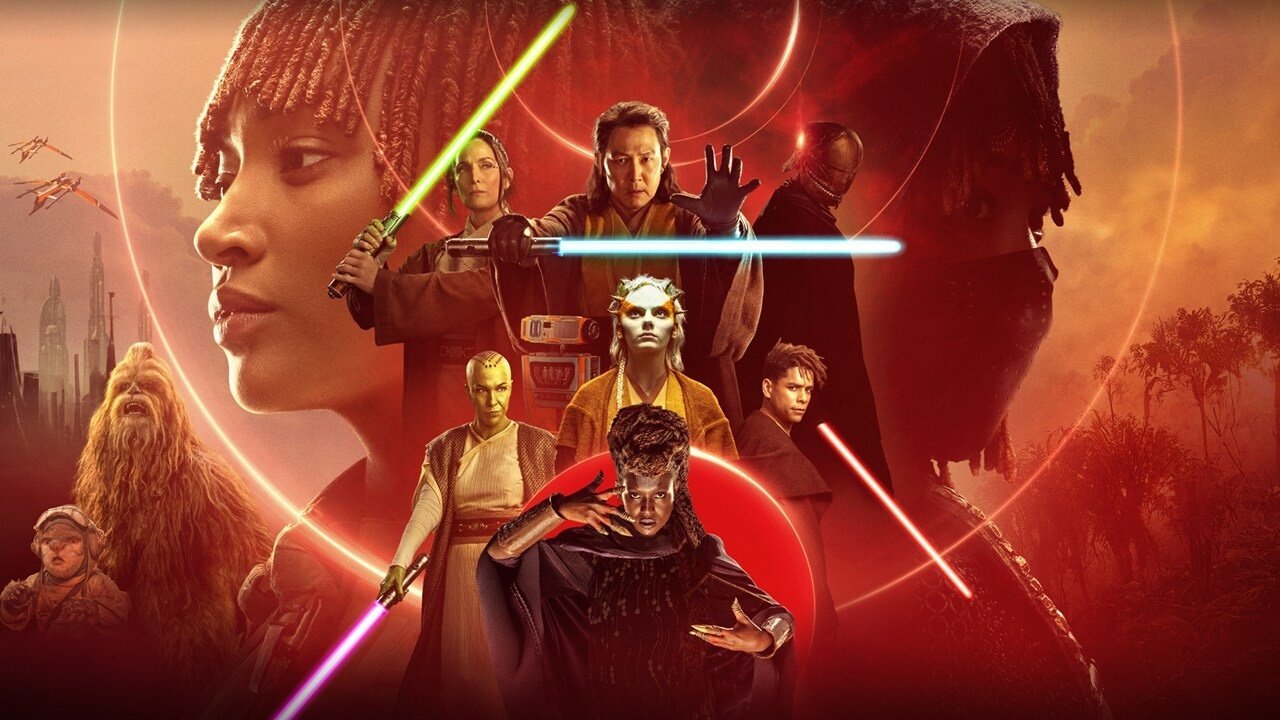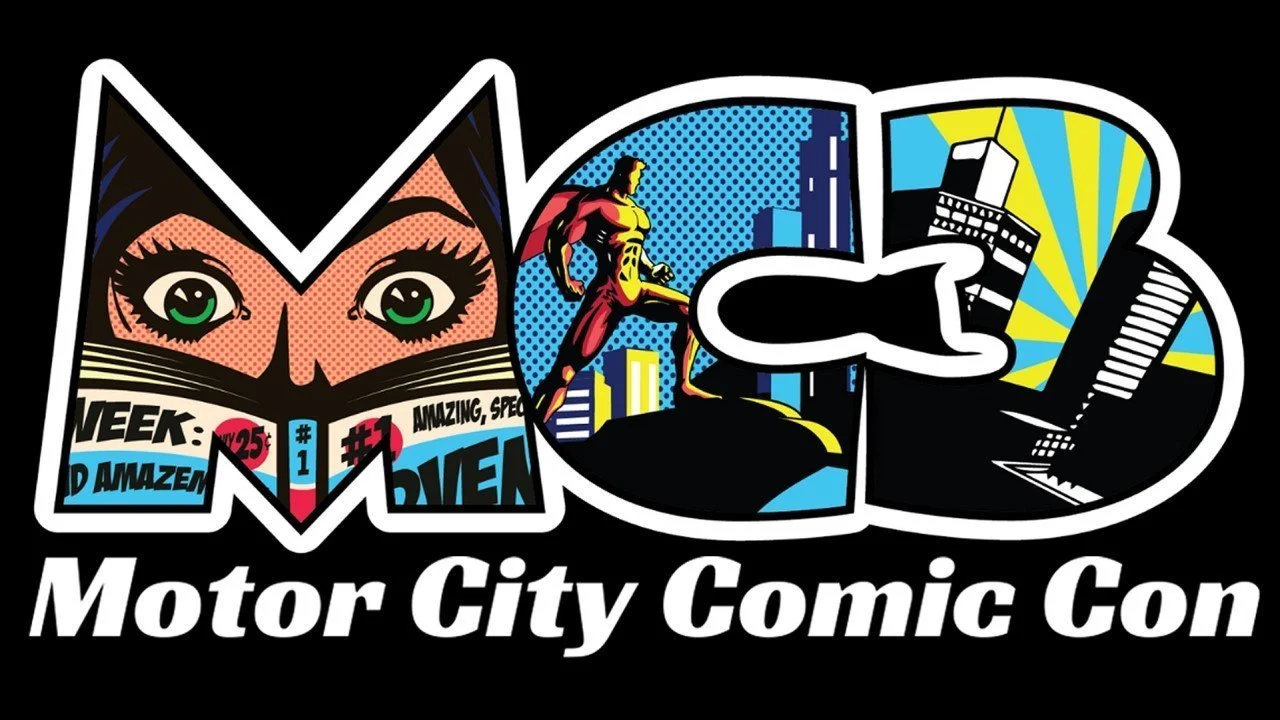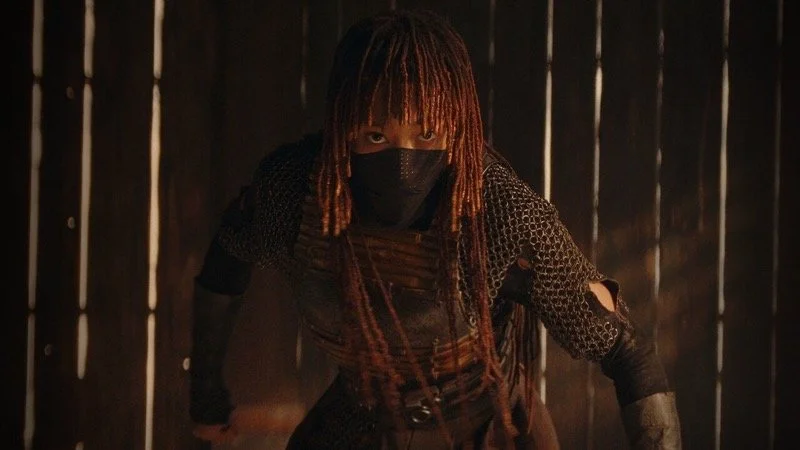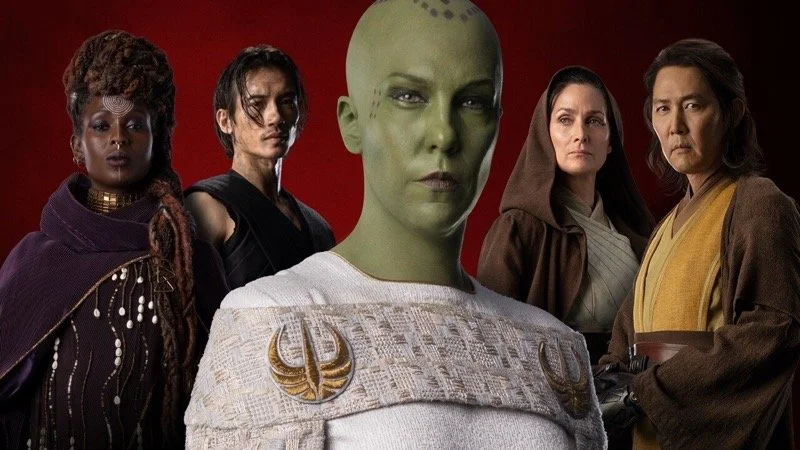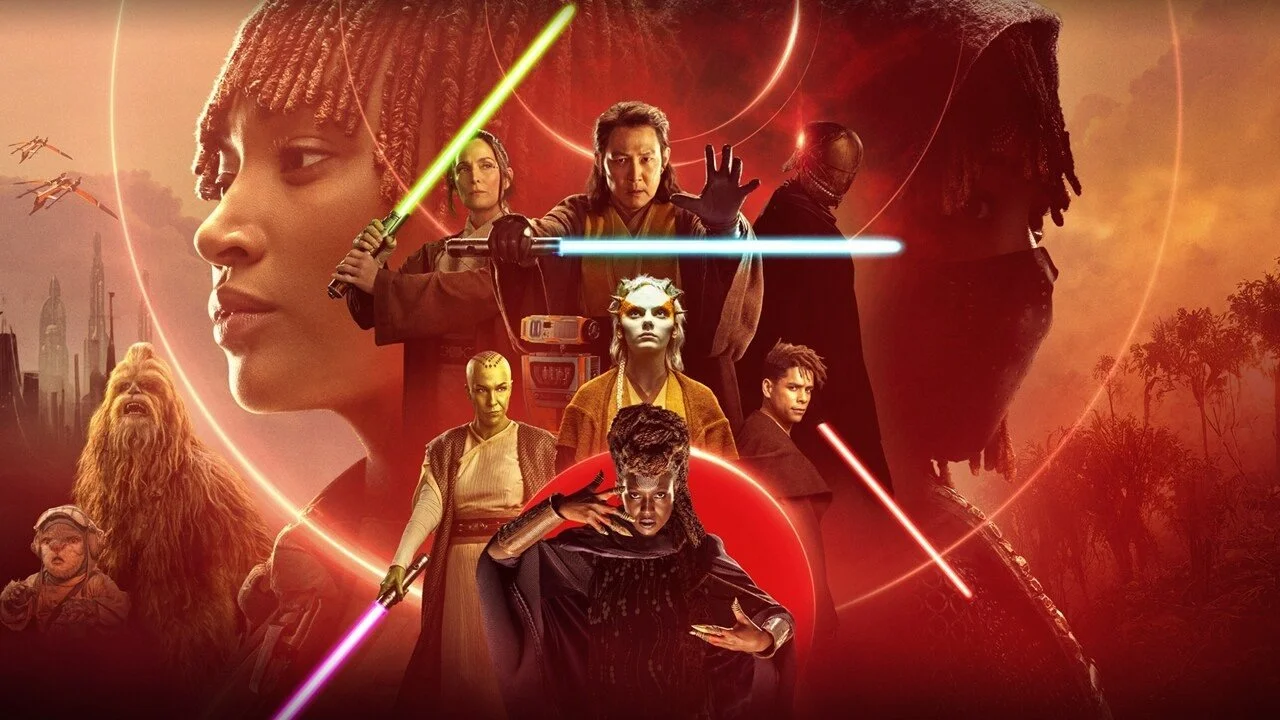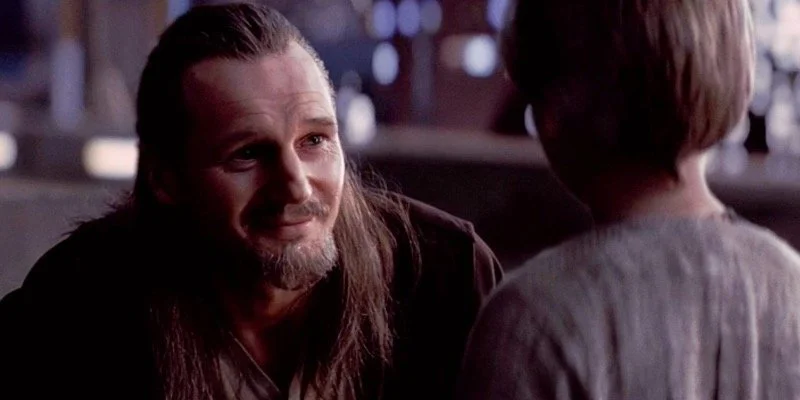Nostalgia, The Future Of 'Star Wars', And Media Literacy
Image Source: Fandom
Hello class.
I apologize for my absence; I’ve been dealing with some personal stuff. That’s mostly settled for the moment, so I wanted to come back and check in on things. And, without surprise, the world’s still on fire.
Now, there’s word from the Star Wars universe that perhaps there’s trouble brewing at Lucasfilm. I try to avoid the comment sections these days for peace of mind, but I have to assume the Fandom Menace loves this, adding it to their anti-Mouse crusade. Do I have that right?
I am, of course, referring to the Hollywood Reporter article that came out about Rey and the future of the franchise. Now that Simon Kinberg supposedly signed on to write and produce a new trilogy, he wants Rey to be the focus of that. The article talks about how Rey is supposedly of big interest (and value) to the future of the franchise and will appear in several works that are in development. Borys Kit, the author, talks about the struggles of the franchise of late, in their apparent difficulty with creating “meaningful characters beyond those first created by Lucas” and how Kathleen Kennedy is taking the brunt of the fire. Referencing several parallel works in development and a comment that Star Wars is a nostalgia-based franchise that is running out of nostalgia, he paints a dire situation at Lucasfilm.
RELATED:
Image Source: Vanity Fair
I don’t think that’s necessarily the whole picture.
Despite ignoring the clear misogyny that lays at the foundation of the attacks on Kennedy and fueled much of the animosity toward recent shows, I also think the article ignores other key facts and developments that sort of turn the article into a bit of clickbait, trying to capitalize on the anti-Disney hate that fuels much of the vitriolic discourse online among the Fandom Menace to get reads.
To start, the only mention of Dave Filoni is that he is the Chief Creative Officer at Lucasfilm. It’s a surprising omission, considering he’s essentially the loremaster for the franchise now. The man worked with Lucas himself; he knows the ins and outs of the lore and the storylines, and he gets to iron out the wrinkles that the fans are so vehemently pressed to make sure are perfect. But there’s not one mention of this role in organizing all this supposed chaos surrounding Rey being in multiple projects. He writes about how the release order of these projects could muck up the ones that follow, but that doesn’t track with me. Kit talks about the Taika Waititi movie, which, to my knowledge, was reported to be on indefinite hold a month ago, and the Rogue Squadron movie, which is also on hold and waiting for a draft from Patty Jenkins. He mentions the Lando movie as well, which is still moving forward, and the Shawn Levy project as well. Regarding Rey, it’s mentioned that she is the focus of the standalone movie that was announced some time ago, directed by Sharmeen Obaid-Chinoy, and that “comes into collision” with the new trilogy with Simon Kinberg.
But not a paragraph later, he says the standalone movie doesn’t even have a writer. Furthermore, just today (writing this as of 6 pm on Friday, November 15), that standalone movie was removed from the release schedule for December 2026. How can a just-announced trilogy about Rey collide with a movie that doesn’t even have a writer yet? Again, with Filoni’s role and these developments, as well as the timelines these movies are likely to take place, I don’t see the chaos.
Image Source: IGN
And if we want to talk about nerds being persnickety about timelines, you're reading the words of one. I like my timelines to make sense. But I’m also not an executive at Lucasfilm, and I also really don’t care when it comes down to it. There are more important things to worry about. But I digress. Whether or not Rogue Squadron is set in the new era doesn’t matter. Patty Jenkins is planning on writing it as a fighter pilot movie. It’s in her blood (her dad was a fighter pilot). While Rey can fly, it would be an incredible stretch to make her an integral part of the story, so it’s probably safe to say Rey isn’t involved in that one. It’s also safe to say that she won’t be in the Lando movie, considering it’s starring Donald Glover, the young Lando, and Rey doesn’t even exist at that point.
The rest is just speculation because we don’t know anything about them. To create a narrative of dysfunction and overlapping movies is just disingenuous, and nothing in that article suggests that the right-hand doesn’t know what the left is doing. We have no idea what Filoni’s involvement in the development of these movies and their shuffling timeline is, but because we know what his role is, we can reasonably deduce that he’s handling it. There’s nothing in that list of in-development projects that necessarily says they’re going to overlap. It’s purely overreaction building on the divisions within the community.
I’ll tell you this, though. The one thing that the article does get right is that Star Wars is a nostalgia-based enterprise. Denying that is puzzling, given the discourse online and how passionate people are about the franchise. It smacks of an ignorance of psychology. Why do people get so upset about something that occurs in a show or movie? It doesn’t meet their expectations. But, and here’s a bit of psychology for you: those expectations are entirely created by them. An expectation is based on previous experience and information, and their nostalgia for what they experienced and remember (memory’s accuracy is a whole other discussion we can have) is forming that expectation. So, to claim it’s not a nostalgia-based enterprise is hilarious.
Image Source: IGN
It’s even funnier to blame the cancellations of shows on “bad writing.” Most people who comment that wouldn’t know bad writing if it stared them in the face. Cancellations, like The Acolyte, are prime examples of the nostalgia problem the franchise has, alluded to in the article. Was it the best show they’ve made? Probably not. Was it terrible? Not at all. The show had impressive viewership numbers to start, but it was not as strong a showing as the other shows released. I don’t think the appeal was there. How many people outside the visual medium for the franchise are aware of the High Republic era? The hardcore fans are aware of it, and we have no further to look than the nitpicking that occurred about characters that appeared in the first episodes. But outside that, most people recognize and turn to a Star Wars movie because of the characters they recognize. It’s a problem the whole franchise has, including video games and books, but it doesn’t have to be. They can tell unique stories within the universe itself, but writers need time and trust to not only create memorable characters that can carry the franchise forward, but they also need their shows to have time to find their feet.
I do think these issues are largely the result of an industry still trying to figure out the new market post-writer’s-strike, streaming, and post-Covid. We’d grown used to series with seasons of such short runs, introducing new characters that we have to get to know and also resolving the story within a handful of episodes gives an impression of things being rushed. It’s like meeting someone new. You need to suss it out.
In the end, class, let’s remember, we’re taking incomplete information and trying to form a narrative here, and if we’ve learned anything, it’s that the loudest voices are negative, and nothing sells more than a narrative of chaos. We’re here to think critically. Let your brain drown out their voices.
READ NEXT:
Source(s): The Hollywood Reporter
Save 'The Acolyte': Culture Wars And The State of ‘Star Wars’
Image Source: Star Wars
Good afternoon, class.
I come to you today with some sad news that I’m sure you’re well aware of anyway. The Acolyte has supposedly been canceled.
I really debated if I wanted to step outside my planned column rotation and my media literacy lessons to address this, but there’s hope out there still and, as an educator, I cannot abide trolls, hateful bigots, and assholes. Now, my wordage above is selective for a reason. I used “supposedly” because on one hand, things can change on a dime in Hollywood, and on the other hand, there’s a series of posts on the internet about using the word “canceled” to describe the decision not to renew The Acolyte for a second season. It’s a point I understand wholeheartedly. Words have meaning, and that’s one of the themes of this week’s column.
Unless someone says something explicitly as to why, we may not know exactly why the show was not renewed. I’ve seen the numbers game talked about on Reddit and YouTube by supposed people within the industry. Compared to the other Star Wars shows run on Disney+, it did not perform as strongly as other Star Wars shows in viewing minutes. It also cost a reported $180 million to make. Numbers and minutes just didn’t look pretty enough. Though Hollywood is a strange, fickle beast, in the end, it all comes down to money, and we have to remember that as much as we love Star Wars, it’s a business, and the primary goal is to make money. Streaming has struggled to be profitable so far, and it’s led to a trend of extremely short television seasons and series runs in the name of the bottom line. It’s the horrible reality of the situation of an art form (filmmaking and screenwriting) that is governed by the interests of capital.
RELATED:
Image Source: Star Wars
However, we can’t ignore the demon on the shoulder, though, and the damage they have done. The internet, while connecting the world and reshaping our lives, has given an oversized voice to the small pockets within fandoms that took advantage of the outlets social media gave them that they otherwise wouldn’t have had. They’re racists, sexists, and homophobes, and no longer relegated to the dark pockets of the internet, they have outlets to spread their depraved thoughts online that they wouldn’t dare say in public. Hate attracts hate, it’s basic psychology. Their disdain for women and people of color growing among the casts of Star Wars projects attracted others who thought as disgustingly as they did. In psychology, it’s an incentive for the content creators to spew their filth, and a sense of confirmation bias for the crowds coming to their channels, feeling validated that they aren’t alone in their depravity.
It all brews a sense of entitled gatekeeping, fostering a belief among them that they have some sort of ownership over the franchise. It’s nothing but delusion, as if they have any sort of right to determine what the fandom as a whole should and shouldn’t get to watch. It’s truly an astounding phenomenon to behold, to witness someone think they know what’s best for the franchise, under the guise of comments like “bad writing” or “terrible acting.” It’s funny to think these grifters have any sense as to what good writing or acting is like. I mean, Theory made an AI “film” of what he thinks is better. It’s embarrassingly terrible.
Unfortunately, the system we are forced to participate in further reinforces their behavior through financial incentives. With the news of the non-renewal of The Acolyte, now they feel vindicated, and they’re taking victory laps as if they had an impact on the decision. I will admit the possibility is there, as there was a concerted review bombing campaign against the show after only the first three episodes, which all aired at the same time. Much of the complaints talked about plot lines that didn’t make sense (that eventually came clear later when the show was, you know, done), bogus retconning, and of course the alt-right culture war faux fear-mongering around great replacement bullshit. The likelihood that they had an impact on the decision is not that great, however, and it more likely has to do more with the money.
Image Source: Star Wars
Art and business don’t seem to go hand in hand. Many artists talk about art as this beautiful and organic thing that isn’t done for money. The truth is that art has always thrived on supportive patrons, and when that support wanes, so too does the influx of creatives that expand and push the art form. A great example is the European Renaissance. Decimated by the plague that killed anywhere from 1/3 to 1/2 of the population of Europe, new fortunes were made and the newly wealthy of Europe sought artists to paint, sculpt, and construct great works of art to adorn their mansions and villas. It led to the greatest flourishing of art and culture in Europe since the height of the Roman Empire. With attention and support, the arts thrive. It encourages people to take risks and push the boundaries of art, and when other artists see these risks supported, art gets better. However, when patrons don’t support the risks, art gets stale
I don’t think there’s anything to celebrate here, not for the bottom line, or the trolls. The Acolyte was fresh and new. There wasn’t a Skywalker in sight, and the only original trilogy character they had was a suggestion of Yoda in the last shot of the season. It took the prequel trilogy’s undertones of Jedi ineptitude and twisted a mystery around it. I’m not saying it was the best there was in Star Wars, but it had the potential to grow. Not any longer, however, as the corporate obsession with profit over everything and the fans obsessed with something unobtainable (the past) saw the end of the series.
It’s a troubling sign of the state of the franchise and doesn’t leave much to hope for with the upcoming premiere of Skeleton Crew. Star Wars is set in a galaxy, and galaxies are huge. There is more to the galaxy than the Skywalkers, and with the original cast reaching old age, the stories they can appear in are quickly dwindling, or already have. Millions of fans enjoy Star Wars and all its potential, and neither the entitled grifters nor the bottom line of the Mouse should deny them of that.
Let it flourish.
READ NEXT:
White Moderate Liberal Jedi: Addressing The Obvious For Most, The Surprise For The Ignorant
Image Source: Star Wars
Thank you all for attending today. I’ll be your teacher for the foreseeable future. My name is Mr. Brown, and I’m a social studies teacher with a passion for writing, and all things nerdy and geeky. This column aims to educate but also to comment on the societal aspects of the pop culture franchises we all love. I don’t pull any punches, everyone and everything is fair game to my scrutinizing eye. With that said, let’s begin.
If you’re in touch with Star Wars and haven’t been living under a rock for the last couple of weeks, you’ve likely heard something about the nontroversy (yes, that was intentional) surrounding the newest show, The Acolyte. I’ll give you the TL/DR. A bunch of people have been losing their minds on the internet about the new show because none of the main cast are white males, there’s an implied same-sex couple, and there are some new interpretations of things that the canon police are up in arms about. It’s been this way since the 80s and the original trilogy. It’s just amplified now with the power of social media.
RELATED:
Before I dive into the crux of this column though, let’s have a word about media literacy, or the widespread media illiteracy that seems to have become a plague amongst the fandom. It’s a little surprising to me, an educator, that by 2024, with the prevalence of media in our lives, especially social media now, that media literacy courses aren’t becoming graduation requirements. Then again, as an educator in the system, I’m not that surprised. I think psychology should be a graduation requirement, but I’m a little biased (I teach AP Psychology). With rampant misinformation and the idiocy behind most comments posted online, it’s a sorely needed reform to the education system.
Image Source: IGN Pakistan
I say all this because what drew me to write this article was a tweet. Not just any tweet, but an incredibly ignorant and racist tweet. I won’t cite it here because they don’t deserve the attention, but essentially the poster claims The Acolyte is a queer, Marxist bastardization of the Star Wars lore, and that the Jedi are cis white oppressors and hoard power. My reply was simply that the Jedi are the white liberal moderates that MLK warned us about, and it got me thinking more, and it became the impetus for this column.
If you don’t know or didn’t pay attention in school, Martin Luther King Jr. was arrested in Birmingham, Alabama for protesting with civil disobedience and wrote a letter to the white Baptist leaders of the south, calling them out for their inaction. He laid out everything his organizers did in preparation for their protest. They presented their case to local leaders, engaged in negotiations, and when they were betrayed, they went through training in non-violent direct action and then demonstrated. The letter is riddled with things you could pull out of discourse today. He talks about the comments made to him about his campaigns, their timeliness, and why they break the law or disrupt other people’s lives.
Everything we hear from white liberal moderates today. They were the same people he wrote about in his letter.
The point is, he goes on to explain, is that it’s easy for people who don’t suffer the injustices MLK and others had to endure (and still endure) today. In psychology, we call it the just-world phenomenon. It’s this idea by those in positions of privilege to comment on the state of the world. To them, who have never been on the receiving end of the system and its oppression, the world is just. They’re the kind of people who trumpet calls for law and order. Call it having blinders on, call it privilege, whatever, what MLK was pointing out in his letter is that when you are suffering injustice, there is no “right time” to protest. When you’ve played by the book, and tried to talk reason to people who can’t see you as human, there is only so far you can be pushed before you hold your ground and say “no longer.”
How, then, are the Jedi like the white liberal moderate, and what does this have to do with media literacy?
Image Source: ScreenRant
Well, first off, anyone with media literacy could see that the tweet that set this off clearly missed the point of the prequels. Anakin even pointed it out to Qui-gon, who replied in perfect privilege that he wasn’t there to free slaves. There is suffering in the galaxy, and if the Jedi are the guardians of peace and justice in the galaxy, you would think they would be pretty actively trying to stop slavery and the wrongs committed throughout. Instead, they have cozied up to power (The Republic), and it puts blinders on them. Lucas was hardly subtle about it in the prequels, and all Leslye Headland has done with The Acolyte (set 150 years prior) is show that their ignorance and unwillingness to see what is right in front of them was the start of their downfall. It’s in their teachings, for crying out loud. “Your eyes can deceive you, don’t trust them.”
The Jedi represent what happens when you get complacent and think that progress and work are done because a threat is gone. Much like MLK and his fellow civil rights leaders ultimately were victorious in getting legislation passed and securing their constitutional rights, the evidence right before our eyes makes it clear that their work is far from done. The Jedi are so invested in their superiority and triumph over the Sith for millennia that they allow themselves to sit back and enjoy the peace without working to make sure that peace continues.
If you take that too much to heart, then you miss everything you need to be seeing.
READ NEXT:
Source(s): Letter From Birmingham Jail



